No products
Product successfully added to your shopping cart
There are 0 items in your cart. There is 1 item in your cart.
Epipactis 'Sabine'
3689
Epipactis are rustic terrestrial orchids and easy to grow, showing from the end of May to July flower stalks typical of orchids, with variable colors according to the varieties. Epipactis are among the most prolific orchids.
Epipactis 'Sabine' is a hybrid of Epipactis gigantea and Epipactis palustris. Here is a really easy orchid to grow. When it flowers it produces a beautiful floral stem measuring 70/100 cm. It produces beautiful flowers with a stunning mix of colours ranging from yellow to red with pink tints.
In cultivation - Delivery 15 February 2026
By buying this product you can collect up to 1 loyalty point. Your cart will total 1 point that can be converted into a voucher of 0,20 €.
- Remove this product from my favorite's list.
- Add this product to my list of favorites.
- Send to a friend
Data sheet
| Range | Easy Garden |
| Color | Yellow-orange |
| Flowering | June, July, August |
| Height | 70-100 cm |
| Exposure | Sun, Semi-shade |
| Hardiness | Hardy (-20°C) |
| Presentation | 1 liter container, flowering size plant, 2-3 shoots |
More info
Planting
Epipactis tolerate many conditions. We recommend a light and well-aired soil. You can air your soil by means of some compost for hardy perennials. For an optimal result, 20% of lava stone (vulca, pumice, pouzzolane…) could be added in order to maintain good moisture in summer and to ensure good drainage in winter. The majority of the species (Epipactis palustris) are particularly fond of wet areas and can be cultivated at the banks of ponds or bodies of water.
Exposure
Epipactis can be planted in full sunlight on condition that the substrate is prevented from becoming dry in summer. A more shaded exposure is also possible.
Growth Phase...
During the winter, the plant persists in rhizome form and devel- ops new shoots in the spring. Epipactis are very cold-resistant and do not require any special protection in winter.
The new Epipactis shoots are visible at the beginning of spring while the flowering extends from the end of spring until the first half of summer (June, July). Approximately two months after the flowering, the foliage fades then disappears completely with the arrival of winter.
Highly proliferative, these orchids will quickly form colonies of several hundred head following the successive growth and dormancy cycles.
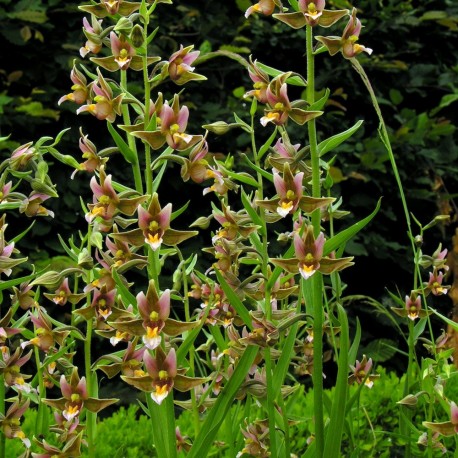





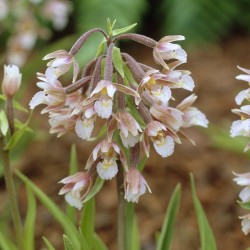
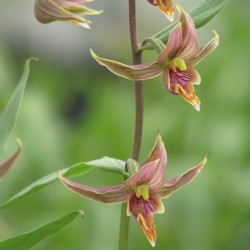
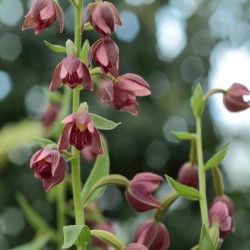
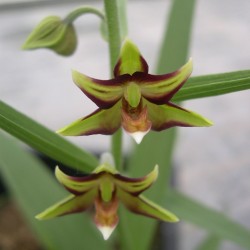
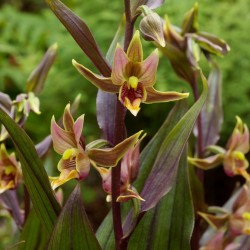
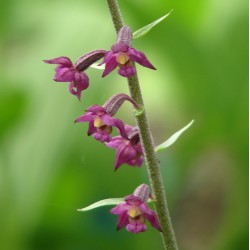
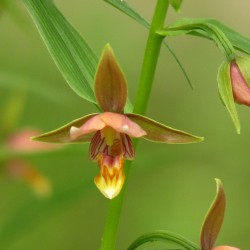
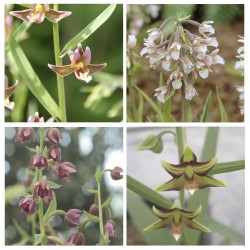
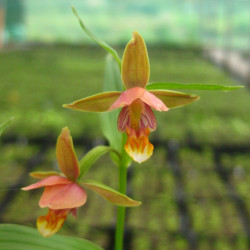
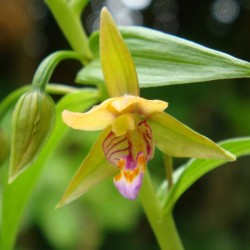
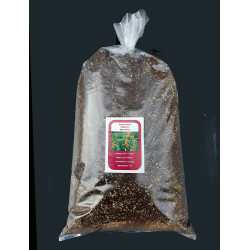
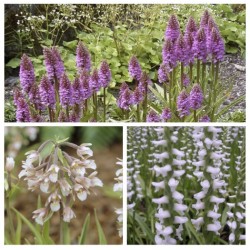
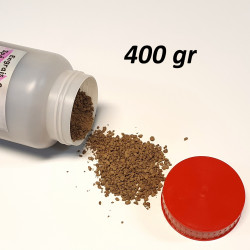
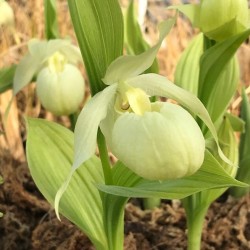
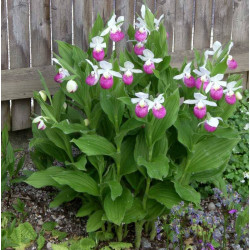
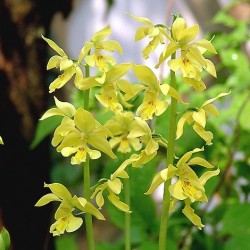
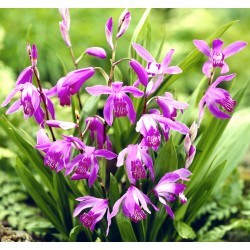
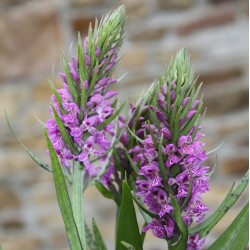
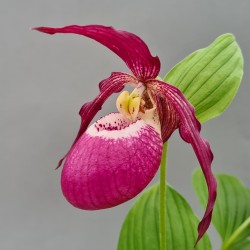

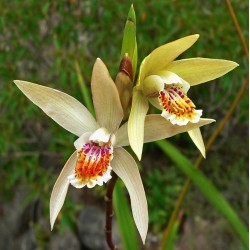
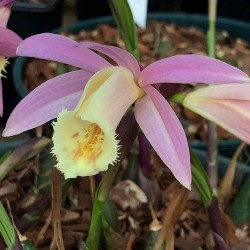
 Two new Epipactis hybrids !
Two new Epipactis hybrids !  Introducing a new colorful Epipactis Garden orchid!
Introducing a new colorful Epipactis Garden orchid!